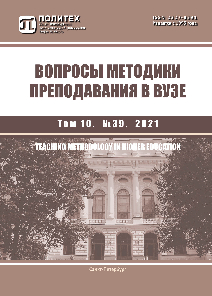Post-editing of machine translation in teaching students majoring in linguistics
The development of technologies and improvement of machine translation quality has led to the emergence of post-editing. This process involves editing a machine translation to achieve quality close to the professional translation. The problem is that the skills of machine translation post-editing are not taught in Russian universities at the moment, despite their demand and relevance on the translation market. The article considers the need of machine translation post-editing to be involved in the educational program of linguistic universities, including those not majoring in translation. At theoretical level, this article describes the difference between post-editing, editing and translation. The article provides comparative analysis of machine translation post-editing programs in foreign universities. The aim is to identify aspects that will serve as reference points for the Russian post-editing training program. At practical level, the effectiveness of post-editing was evaluated in comparison with translation. The post-editing strategies developed earlier by the authors were analyzed for their effectiveness. The study was conducted on the basis of the pedagogical experiment, whose participants were second-year students majoring in Philology. and included quantitative and qualitative analysis of the data. The article provides information of students’ survey analysis and demonstrates their motivation in learning post-editing. The results of the study will be used to create a system of exercises and a postediting educational program for its implementation in Russian universities.



